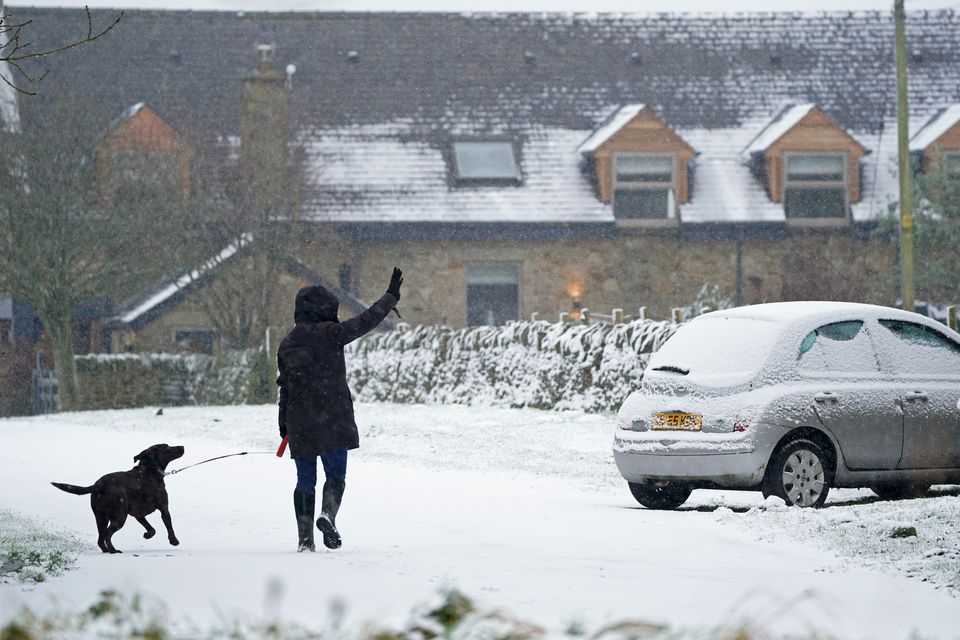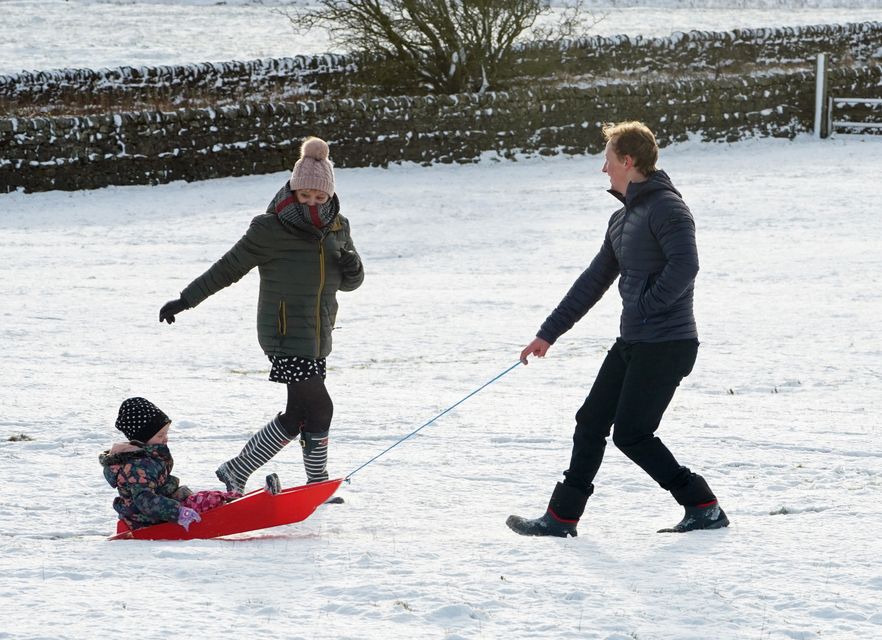With December 25 less than two weeks away, you might be dreaming of a white Christmas – but the official take on the classic lyric is unlikely to live up to your expectations.
Here, the PA news agency looks at the chances of snow at Christmas in the UK this year.
– What is the official definition of a white Christmas?
For the Met Office to declare a white Christmas a single snowflake has to be observed falling in the 24 hours of December 25 anywhere in the UK.
This is a common occurrence; since 1960 more than half of all Christmas Days have been declared a white Christmas.
A woman walks her dog through the snow at Slayley in Northumberland (Owen Humphreys/PA)
2023 was the last white Christmas in the UK, with 11% of weather stations recorded snow falling, although none reported any snow lying on the ground.
– Will there be widespread snow this year?
A picturesque Christmas where widespread snow covers the ground is extremely rare, and since 1960 has only happened four times – in 1981, 1995, 2009 and 2010.
Simon Partridge, a meteorologist for the Met Office, said predicting weather far in advance is like “betting on horses”.
He said: “There will be a consensus of the most likely pattern to be coming out but it doesn’t always.”
At the moment, a picture book Christmas is looking unlikely with “south-westerly winds” expected and rain across the northern and western parts of the UK.
Everywhere else is expected to be “fairly mild”.
A family take advantage of Christmas Day snow with a trip out sledging on the hills near Hexham, Northumberland (Owen Humphreys/PA)
However, if you’re desperate for snow, Mr Partridge suggests heading to the Scottish mountains – the most likely place for snowfall in the UK this Christmas.
– When will we know for sure that it’s going to snow?
Forecasting “impactful” snow is notoriously difficult in the UK because several competing elements have to be exact for snow to fall.
Just a fraction of a degree means the difference between a Christmas day of joyful snowball fights and one spent dodging slushy streets.
Mr Partridge said: “The trouble with trying to forecast snow in the UK is that it’s a very fine line between whether we get snow or rain.”
The Met Office will only truly know if there will be big flurries on Christmas day a week in advance because their five-day forecasts are the most detailed and accurate.
– Is snow more likely over the Christmas period?
Christmas marks the beginning of when it is likely to snow in the UK but it is more probable for there to be snow in January and February than in December.
Snow settles on the ground for an average of three days in December compared to 3.3 in January and 3.4 in February.
Climate change has also minimised the chances of snow due to higher average temperatures across the land and sea globally.

